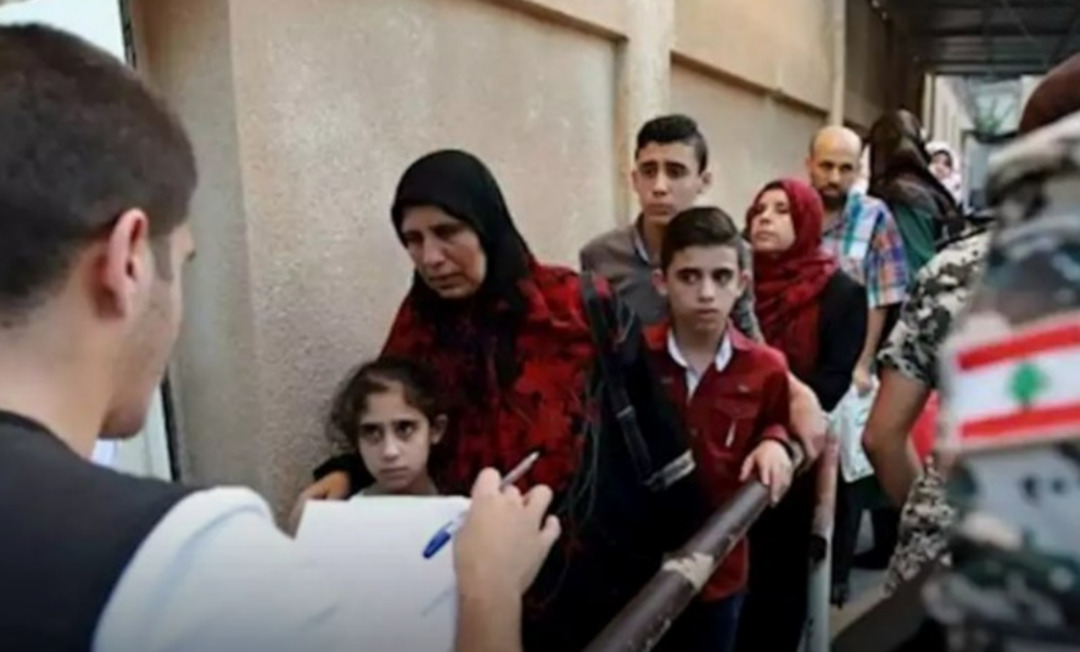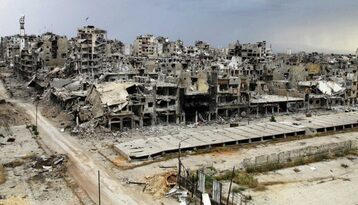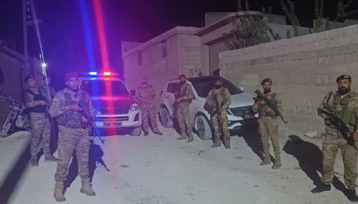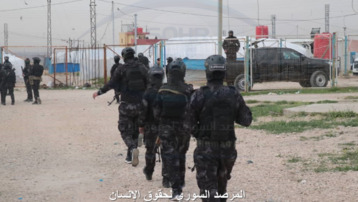-
Tweet by Al Jazeera Journalist Inflames Violence Against Syrian Refugees in Lebanon
-
The exploitation of social media to spread misleading information reveals an urgent need to enhance media awareness and responsibility in news reporting to avoid fueling conflicts

The Hay al-Sellom neighborhood in the Lebanese capital, Beirut, witnessed a wave of violent attacks targeting Syrian citizens, raising serious concerns about the deterioration of humanitarian conditions and the escalation of sectarian tensions in the country.
Local activists reported that the rate of attacks on Syrians has notably increased following a controversial tweet posted by Jamal Rayyan, a broadcaster on Qatar's Al Jazeera channel. In his tweet, Rayyan claimed that Syrians were involved in operations to eliminate Hezbollah leaders, which ignited anger among some Lebanese.
Eyewitnesses expressed shock at the horrific scenes that took place in the streets of Hay al-Sellom, where a group of Lebanese youths attacked homes and shops owned by Syrians.
Syrian human rights activists confirmed that these incidents are not isolated, but come in the context of escalating hate speech and discrimination against Syrian refugees in Lebanon. They pointed out that the stifling economic crisis suffered by Lebanon has exacerbated feelings of resentment towards refugees, who are unfairly accused of being the cause of deteriorating living conditions.
At the same time, Jamal Rayyan's tweet sparked a wave of criticism from journalists and observers, who accused him of inciting violence and spreading unconfirmed information. They commented that it is unfortunate for a journalist of this level to use his platform to spread dangerous allegations without evidence, fueling tensions in an already fragile society.
Refugee affairs experts warned that the continuation of such attacks could lead to a severe humanitarian crisis, pointing out that many Syrians in Lebanon already live in extremely difficult conditions. They emphasized that there is an urgent need to address the root causes of the problem, including improving economic conditions for host communities and combating rumors and misinformation.
In light of these rapid developments, the future of relations between the Lebanese and Syrian communities remains a matter of great concern, with increasing calls for urgent action to prevent further escalation and protect the rights of all residents on Lebanese soil.
Levant-Follow up
You May Also Like
Popular Posts
Caricature
BENEFIT AGM approves 10%...
- March 27, 2025
BENEFIT, the Kingdom’s innovator and leading company in Fintech and electronic financial transactions service, held its Annual General Meeting (AGM) at the company’s headquarters in the Seef District.
During the meeting, shareholders approved all items listed on the agenda, including the ratification of the minutes of the previous AGM held on 26 March 2024. The session reviewed and approved the Board’s Annual Report on the company’s activities and financial performance for the fiscal year ended 31 December 2024, and the shareholders expressed their satisfaction with the company’s operational and financial results during the reporting period.
The meeting also reviewed the Independent External Auditor’s Report on the company’s consolidated financial statements for the year ended 31 December 2024. Subsequently, the shareholders approved the audited financial statements for the fiscal year. Based on the Board’s recommendation, the shareholders approved the distribution of a cash dividend equivalent to 10% of the paid-up share capital.
Furthermore, the shareholders endorsed the allocation of a total amount of BD 172,500 as remuneration to the members of the Board for the year ended 31 December 2024, subject to prior clearance by related authorities.
The extension of the current composition of the Board was approved, which includes ten members and one CBB observer, for a further six-month term, expiring in September 2025, pending no objection from the CBB.
The meeting reviewed and approved the Corporate Governance Report for 2024, which affirmed the company’s full compliance with the corporate governance directives issued by the CBB and other applicable regulatory frameworks. The AGM absolved the Board Members of liability for any of their actions during the year ending on 31st December 2024, in accordance with the Commercial Companies Law.
In alignment with regulatory requirements, the session approved the reappointment of Ernst & Young (EY) as the company’s External Auditors for the fiscal year 2025, covering both the parent company and its subsidiaries—Sinnad and Bahrain FinTech Bay. The Board was authorised to determine the external auditors’ professional fees, subject to approval from the CBB, and the meeting concluded with a discussion of any additional issues as per Article (207) of the Commercial Companies Law.
Speaking on the company’s performance, Mr. Mohamed Al Bastaki, Chairman BENEFIT , stated: “In terms of the financial results for 2024, I am pleased to say that the year gone by has also been proved to be a success in delivering tangible results. Growth rate for 2024 was 19 per cent. Revenue for the year was BD 17 M (US$ 45.3 Million) and net profit was 2 Million ($ 5.3 Million).
Mr. Al Bastaki also announced that the Board had formally adopted a new three-year strategic roadmap to commence in 2025. The strategy encompasses a phased international expansion, optimisation of internal operations, enhanced revenue diversification, long-term sustainability initiatives, and the advancement of innovation and digital transformation initiatives across all service lines.
“I extend my sincere appreciation to the CBB for its continued support of BENEFIT and its pivotal role in fostering a stable and progressive regulatory environment for the Kingdom’s banking and financial sector—an environment that has significantly reinforced Bahrain’s standing as a leading financial hub in the region,” said Mr. Al Bastaki. “I would also like to thank our partner banks and valued customers for their trust, and our shareholders for their ongoing encouragement. The achievements of 2024 set a strong precedent, and I am confident they will serve as a foundation for yet another successful and impactful year ahead.”
Chief Executive of BENEFIT; Mr. Abdulwahed AlJanahi commented, “The year 2024 represented another pivotal chapter in BENEFIT ’s evolution. We achieved substantial progress in advancing our digital strategy across multiple sectors, while reinforcing our long-term commitment to the development of Bahrain’s financial services and payments landscape. Throughout the year, we remained firmly aligned with our objective of delivering measurable value to our shareholders, strategic partners, and customers. At the same time, we continued to play an active role in enabling Bahrain’s digital economy by introducing innovative solutions and service enhancements that directly address market needs and future opportunities.”
Mr. AlJanahi affirmed that BENEFIT has successfully developed a robust and well-integrated payment network that connects individuals and businesses across Bahrain, accelerating the adoption of emerging technologies in the banking and financial services sector and reinforcing Bahrain’s position as a growing fintech hub, and added, “Our achievements of the past year reflect a long-term vision to establish a resilient electronic payment infrastructure that supports the Kingdom’s digital economy. Key developments in 2024 included the implementation of central authentication for open banking via BENEFIT Pay”
Mr. AlJanahi concluded by thanking the Board for its strategic direction, the company’s staff for their continued dedication, and the Central Bank of Bahrain, member banks, and shareholders for their valuable partnership and confidence in the company’s long-term vision.
opinion
Report
ads
Newsletter
Subscribe to our mailing list to get the new updates!






















